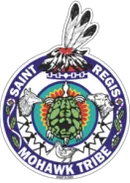Restoration and Creation
In order to restore our native wildlife, it's important that wetland habitats also be restored. Because of wildlife's needs for natural habitats, acquiring, developing and maintaining wetland habitats is a primary objective of the Wetlands Protection Program. Additionally, wetlands filter sediment and pollutants from disturbed landscapes. This makes wetlands extremely valuable in protecting water resources.
The wetland restoration task consists of attempting to recreate basins long ago drained for agriculture and other land uses. This can be accomplished by plugging drainage ditches or constructing low dikes behind which water is stored. It's always desirable to try to restore the historical configuration of the wetlands that formerly existed on any particular site. In some instances, however, land use has changed the topography so much that constructed, or "created", wetlands must substitute for a "natural" restoration.
Restoring native wetland vegetation is also an important part of the process, for plants offer food and shelter to the many wild creatures inhabiting a marsh. On some sites a residual seed bank survives to quickly repopulate a wetland with new plants once water is restored to the system. Created wetlands and natural basins drained for 50 years or more often require seeding or planting aquatic vegetation. In the end, only nature can hope to restore the complete natural plant and animal community in restored wetlands. And while some species quickly adapt to restored marshes, others may require decades before the restored wetland has properly "aged".
Akwesasne Freedom School
In 2000, the Akwesasne Freedom School took on a restoration project on their property located off of State Route 37, near the east end of the reservation. The project involved cooperation among school staff, parents and students, SRMT Environment Division, Akwesasne Task Force on the Environment, Natural Resources Conservation Service and NYS Department of Environmental Conservation. This area had wetland characteristics before being converted for agricultural uses. For all their hard work, the Akwesasne Freedom School received a national award from President Bush.
| Download the slide presentation |
